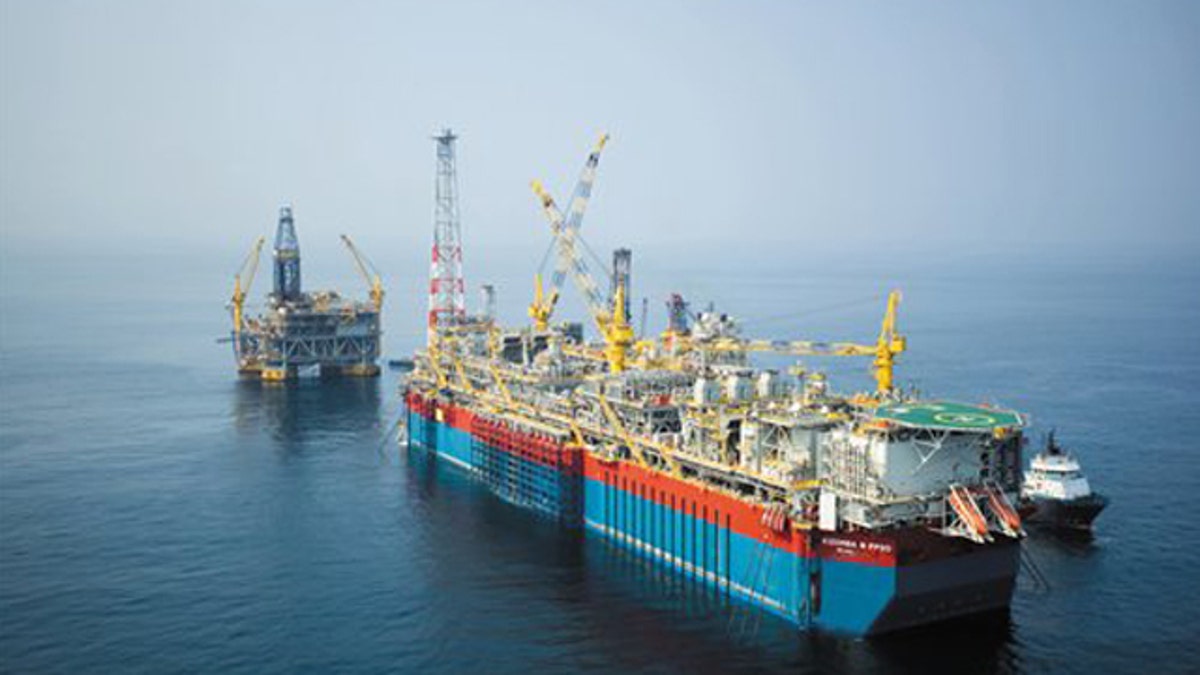
Shown here is the Kizomba B development in Angola Block 15, a deepwater drilling project. (AP)
Al Qaeda was looking at ways last year to target oil tankers at sea in order to hurt Western economies, the U.S. government said in an intelligence update to local officials.
The information apparently came from the trove of files in Usama bin Laden's Pakistan compound.
There is no intelligence pointing to a specific plot or threat, and so far the Obama administration does not plan to issue a special alert. Department of Homeland Security spokesman Matthew Chandler said the U.S. remains at a "heightened state of vigilance," and continues to conduct random screenings and monitor information "pertaining to threats against the maritime and energy sectors."
"We are not aware of indications of any specific or imminent terrorist attack plotting against the oil and natural gas sector overseas or in the United States. However, in 2010 there was continuing interest by members of Al Qaeda in targeting oil tankers and commercial oil infrastructure at sea," Chandler said in a statement.
He said it is "unclear" whether Al Qaeda conducted any more planning regarding such targets since mid-2010. He said DHS and FBI sent out the intelligence note to "provide greater insights into Al Qaeda's interest in targeting oil and natural gas infrastructure."
In the confidential warning obtained by The Associated Press, the FBI and the Homeland Security Department said that Al Qaeda sought information on the size and construction of oil tankers, and determined that blowing them up from the inside would be easiest due to the strength of their hulls. Al Qaeda recommended test runs of the plot.
The government warning went to federal, state and local law enforcement and companies in the oil and gas industries.
In 2007, the Japanese tanker the Golden Nori was hijacked carrying 40,000 tons of benzene. Initially, American intelligence agents worried terrorists from Somalia's Islamic extremist insurgency could be involved, and might try to crash the boat into an offshore oil platform or use it as a gigantic bomb in a Middle Eastern port. When the Japanese vessel was towed back into Somali waters and ransom demanded, the coalition was relieved to realize it was a pirate attack.
The Associated Press contributed to this report.




